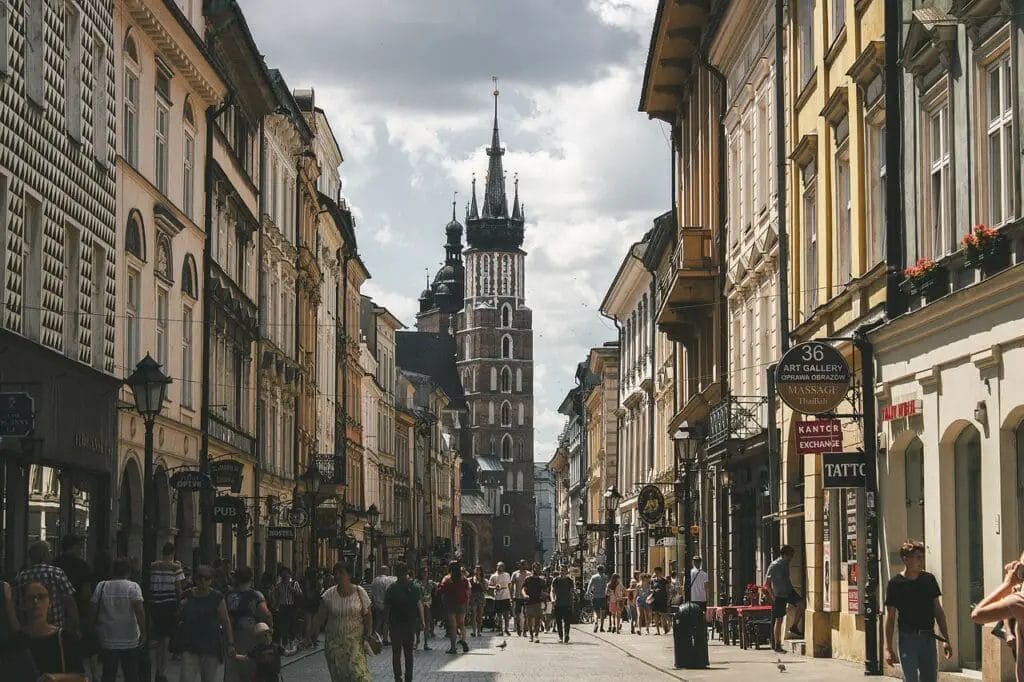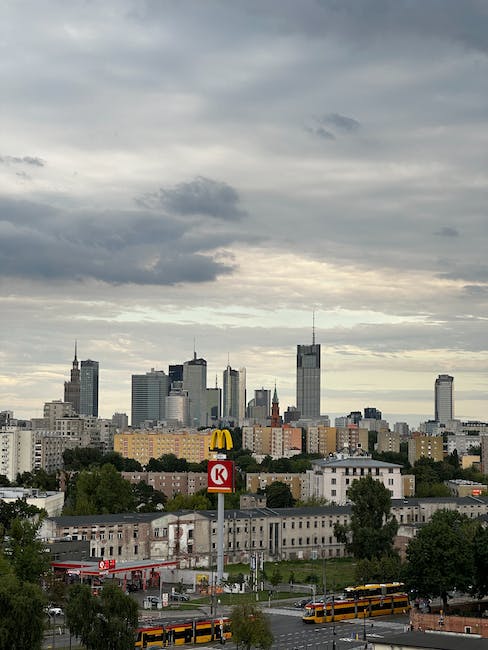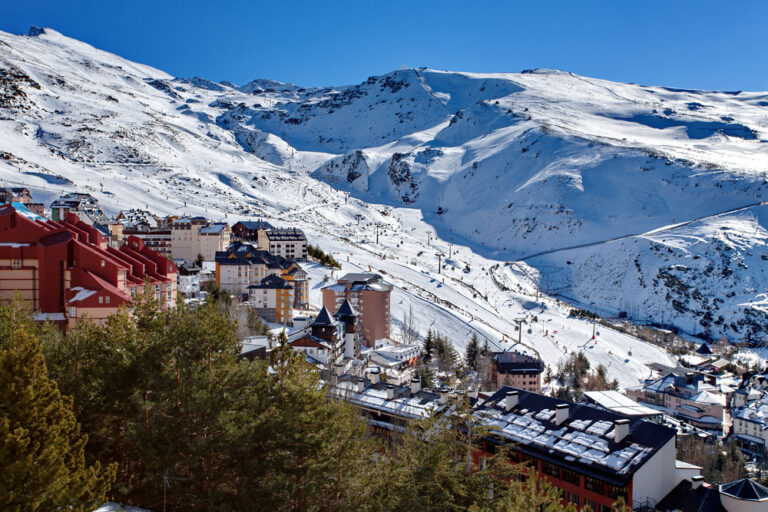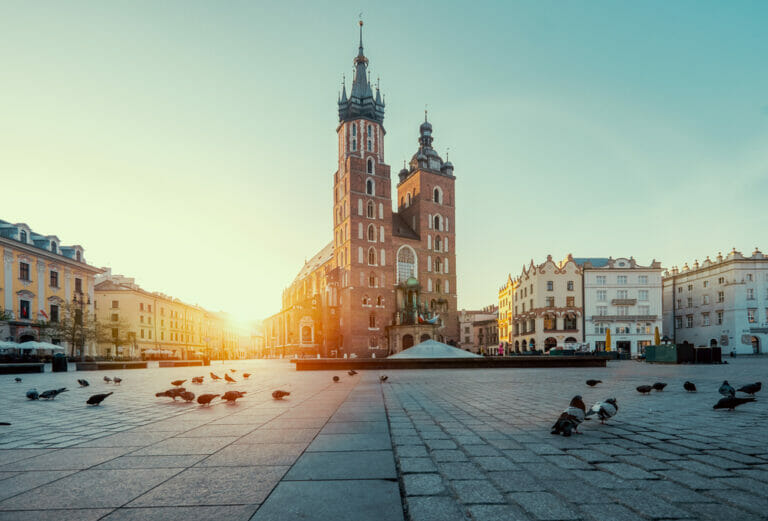How to say Poland in Polish
Poland is a beautiful country with a rich history and culture. It is also a popular tourist destination, with millions of visitors each year. If you’re planning a trip to Poland, it’s helpful to know How to say Poland in Polish.
You don’t want to end up in a country without knowing its name in the local language.

Poland in Polish
The Polish word for Poland is Polska. It is pronounced as pol-ska. The word is feminine, so when referring to Poland in Polish, you would use the feminine endings for adjectives and pronouns.
The formal name of Poland
The full official name of Poland is Rzeczpospolita Polska. This means “Republic of Poland” in English. However, in everyday conversation, people simply refer to the country as Polska.
How to use the word “Polska” in a sentence
Here are some examples of how to use the word “Polska” in a sentence:
- Jadę do Polski w przyszłym tygodniu. (I’m going to Poland next week.)
- Polska jest pięknym krajem. (Poland is a beautiful country.)
- Kocham Polskę. (I love Poland.)
Tips for pronouncing “Polska”
Here are a few tips for pronouncing the Polish word “Polska”:
- The “o” is pronounced like the “o” in the English word “pot.”
- The “l” is pronounced like the “l” in the English word “lot.”
- The “s” is pronounced like the “s” in the English word “set.”
- The “ka” is pronounced like the “ka” in the English word “car.”
What language do they speak in Poland?
The official language of Poland is Polish, a West Slavic language spoken by over 40 million people worldwide.
Polish is related to other Slavic languages such as Czech, Slovak, Russian, and Ukrainian. It is a highly inflected language, meaning that the endings of words change depending on their grammatical function.
Polish is written in the Latin alphabet, with some additional diacritics.
In addition to Polish, there are a number of minority languages spoken in Poland, including Kashubian, German, Belarusian, Ukrainian, and Lithuanian.
English is also becoming increasingly widely spoken in Poland, especially among younger people.
Useful Phrases to Learn in Polish
Greetings and politeness
- Dzień dobry (jen doh-bri) – Good day
- Dobry wieczór (doh-bri vyech-oor) – Good evening
- Dzień dobry/dobry wieczór (jen doh-bri/doh-bri vyech-oor) – Hello (formal)
- Cześć (cheshch) – Hello (informal)
- Przepraszam (psheh-prah-shahm) – Excuse me
- Dziękuję (jen-koo-yeh) – Thank you
- Proszę (proh-sheh) – Please
- Przykro mi (pshrik-roh mi) – I’m sorry
- Nie ma za co (nyeh mah zah coh) – You’re welcome
Getting around
- Gdzie jest toaleta? (gdyeh yest toh-ah-leh-tah) – Where is the toilet?
- Jak dojechać do…? (yahk doh-yeh-hahch doh…) – How do I get to…?
- Ile kosztuje bilet? (ee-leh kohsh-too-yeh bi-let) – How much is a ticket?
- Rozumiem (roh-zoo-myem) – I understand
- Nie rozumiem (nyeh roh-zoo-myem) – I don’t understand
Food and drink
- Smacznego (sma-chneh-goh) – Enjoy your meal
- Na zdrowie (nah zdroh-vyeh) – Cheers!
- Chciałbym/chciałabym zamówić… (chcheh-yah-wum/chcheh-yah-wum zam-oo-vee-ch…) – I would like to order…
- Rachunek, proszę (rah-hoo-nehk, proh-sheh) – The bill, please
Other useful phrases
- Tak (tahk) – Yes
- Nie (nyeh) – No
- Może (moh-zheh) – Maybe
- Halo (hah-loh) – Hello (on the phone)
- Do widzenia (doh vee-dzen-ya) – Goodbye
Poland in other languages
- Afrikaans: Pole
- Albanian: Polonia
- Arabic: بولندا (Būlandā)
- Armenian: Լեհաստան (Lehastan)
- Basque: Polonia
- Belarusian: Польшча (Pol’shcha)
- Bengali: পোল্যান্ড (Pōlāṇḍa)
- Bulgarian: Полша (Polsha)
- Catalan: Polònia
- Chinese (Simplified): 波兰 (Bōlán)
- Chinese (Traditional): 波蘭 (Bōlán)
- Croatian: Poljska
- Czech: Polsko
- Danish: Polen
- Dutch: Polen
- Estonian: Poola
- Filipino: Polonya
- Finnish: Puola
- French: Pologne
- Galician: Polonia
- German: Polen
- Greek: Πολωνία (Polonia)
- Hebrew: פולין (Polin)
- Hindi: पोलैंड (Pōlāṇḍa)
- Hungarian: Lengyelország
- Icelandic: Pólland
- Indonesian: Polandia
- Irish: An Pholainn
- Italian: Polonia
- Japanese: ポーランド (Pōrando)
- Korean: 폴란드 (Pollandeu)
- Latvian: Polija
- Lithuanian: Lenkija
- Malay: Poland
- Maltese: Il-Polonja
- Marathi: पोलंड (Pōlaṇḍa)
- Norwegian: Polen
- Persian: لهستان (Lehestān)
- Polish: Polska
- Portuguese: Polônia
- Romanian: Polonia
- Russian: Польша (Pol’sha)
- Serbian: Пољска (Poljska)
- Slovak: Poľsko
- Slovenian: Poljska
- Spanish: Polonia
- Swahili: Poland
- Swedish: Polen
- Thai: โปแลนด์ (Pōleṇḍ̒)
- Turkish: Polonya
- Ukrainian: Польща (Pol’shcha)
- Vietnamese: Ba Lan
Conclusion: Poland in Polish
Now that you know how to say Poland in Polish and how to use the different declensions of the Polish word for Poland, you’re well on your way to having a successful trip to this amazing country.
Here are some additional tips for using the Polish word for Poland:
- When referring to Polish people, you can say “Polacy” for men and “Polki” for women.
- When referring to Polish culture, you can say “kultura polska.”
- When referring to the Polish language, you can say “język polski.”
- When referring to Polish food, you can say “kuchnia polska.”
- When referring to Polish music, you can say “muzyka polska.”
I hope this enhanced post is more helpful. Please let me know if you have any other questions.






